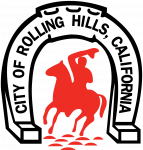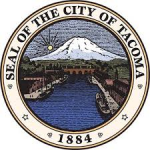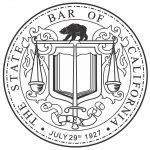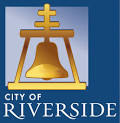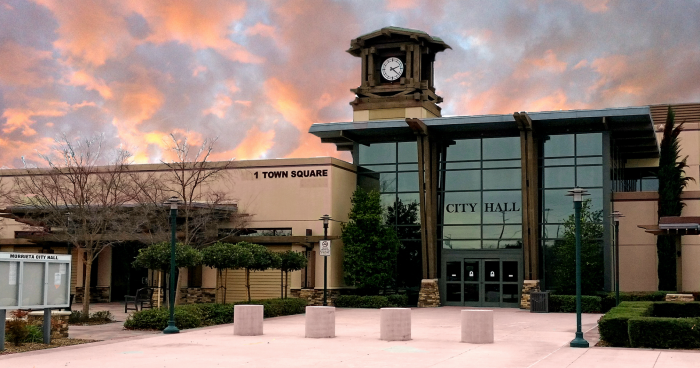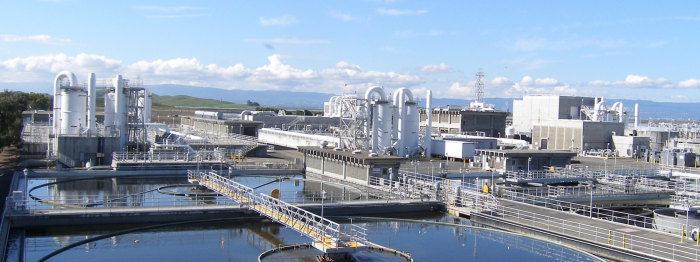Government Engineering Jobs: Unlocking Stability, Impact, and Innovation

Why Consider Government Engineering Jobs
Imagine waking up every day knowing your work directly impacts millions of lives. That's the reality for government engineers across the nation. But why should you, as a talented engineer, consider steering your career towards the public sector? Let's break it down.
Unparalleled Job Stability
In an era of economic uncertainty, government engineering jobs stand out as beacons of stability. Unlike private sector positions that can be subject to market fluctuations, government roles typically offer long-term security. This means you can focus on your work without the constant worry of layoffs or downsizing.
Work That Truly Matters
Ever dreamed of being part of something bigger than yourself? Government engineering jobs put you at the forefront of national priorities. Whether it's developing sustainable energy solutions, improving national security, or advancing space exploration, your work directly contributes to the progress and well-being of your country.
Cutting-Edge Technology and Research
Contrary to popular belief, government agencies are often at the forefront of technological innovation. From DARPA's advanced defense projects to NASA's space exploration initiatives, government engineers frequently work with state-of-the-art technology that's years ahead of commercial applications.
Competitive Benefits Package
While salaries in government positions may sometimes be lower than their private sector counterparts, the overall benefits package often more than makes up for it. Think comprehensive health insurance, attractive retirement plans, and generous paid time off. Many government positions also offer student loan forgiveness programs – a significant perk for recent graduates.
Clear Career Progression
Government engineering jobs typically come with structured career paths and ample opportunities for advancement. As you gain experience and expertise, you can climb the ranks, potentially leading large-scale projects or departments.
Work-Life Balance
If you've ever felt burned out from the relentless pace of private sector engineering, you'll appreciate the emphasis on work-life balance in government roles. Regular hours, flexible schedules, and ample vacation time are common features of these positions.
Diverse Project Exposure
Government agencies tackle a wide array of challenges, offering you the chance to work on diverse projects throughout your career. This variety not only keeps your work interesting but also broadens your skill set, making you a more versatile engineer.
Networking Opportunities
Working in government exposes you to a vast network of professionals across various agencies and disciplines. These connections can be invaluable for career growth, collaborative projects, and personal development.
So, are you ready to redefine your engineering career? Government engineering jobs offer a unique blend of stability, purpose, and innovation that's hard to match in the private sector. They provide an opportunity to apply your skills to solve some of society's most pressing challenges while enjoying a rewarding and secure career.
As we delve deeper into the world of government engineering jobs, you'll discover even more reasons why this career path might be the perfect fit for your aspirations and values. Stay tuned as we explore the diverse landscape of government engineering positions in our next section.
Types of Government Engineering Positions
The world of government engineering is vast and varied, offering opportunities across numerous disciplines and agencies. Whether you're passionate about space exploration, environmental conservation, or national security, there's likely a government engineering role that aligns with your interests and expertise. Let's explore some of the most exciting and impactful positions available.

Aerospace Engineering
Ever dreamed of reaching for the stars? NASA (National Aeronautics and Space Administration) and the Department of Defense are always on the lookout for talented aerospace engineers. You could find yourself assembling space exploration tools at the Stennis Space Center, developing propulsion systems for the Air Force, or working on flight safety as a test engineer at the Federal Aviation Administration (FAA).

Civil Engineering
If building the nation's infrastructure excites you, civil engineering roles in government agencies might be your calling. You might work as a structural engineer at the Department of Transportation, design hydraulic systems for the Army Corps of Engineers, or shape the future of our cities as an urban planning engineer at the Department of Housing and Urban Development.
Environmental Engineering
For those passionate about sustainability, several agencies offer rewarding positions if you want to be an environmental engineer or work in land management. You could be a climate change mitigation engineer at the Environmental Protection Agency (EPA), develop renewable energy systems for the Department of Energy, or manage water resources at the U.S. Geological Survey.

Electrical and Computer Engineering
In our increasingly digital world, electrical and computer engineers play crucial roles in government agencies. You might find yourself as a cybersecurity engineer at the Department of Homeland Security, developing communications systems for the National Security Agency (NSA), or working on power grid efficiency at the Federal Energy Regulatory Commission.


Mechanical Engineering
From developing advanced military equipment to improving energy efficiency, mechanical engineers are in high demand. Naval systems engineering for the U.S. Navy, HVAC efficiency improvements for the General Services Administration, or robotics development at the National Institute of Standards and Technology could all be part of your career path.

Biomedical Engineering
Government agencies are at the forefront of medical research and technology development. As a biomedical engineer, you might work on medical device approval at the Food and Drug Administration (FDA), dive into bioinformatics at the National Institutes of Health (NIH), or develop advanced prosthetics for the Department of Veterans Affairs.
Chemical Engineering
Chemical engineers in government roles work on everything from developing new materials to ensuring food and drug safety. You could be a process safety engineer at the Occupational Safety and Health Administration (OSHA), research biofuels for the Department of Agriculture, or develop new materials at the National Institute of Standards and Technology.

Software Engineering
In our digital age, software engineers play a crucial role across nearly all government agencies. You might find yourself developing artificial intelligence systems at the Defense Advanced Research Projects Agency (DARPA), working on data science projects for the Census Bureau, or creating geospatial software at the National Geospatial-Intelligence Agency.

Imagine developing AI systems that could revolutionize national security or create software that helps manage natural disasters. These are just some of the exciting projects government software engineers tackle.
The diversity of government engineering positions means that regardless of your specific area of expertise, there's likely a role that matches your skills and interests. These positions offer the chance to work on projects of national and even global significance, often utilizing cutting-edge technology and pushing the boundaries of what's possible in engineering.
How to Land a Government Engineering Job
Securing a government engineering position can be a unique process, quite different from job hunting in the private sector. But don't worry – we've got you covered with this step-by-step guide to help you navigate the path to your dream government engineering job.
Understand the Federal Hiring Process
The federal government has its own hiring system, which can seem complex at first glance. Familiarize yourself with the process, including understanding job series codes, GS levels, and how federal resumes differ from traditional ones. This knowledge will give you a significant advantage from the start.
Pro tip: The Office of Personnel Management (OPM) website offers valuable resources to help you understand federal employment.
Create a Federal Resume
Unlike private sector resumes, federal resumes are typically longer and more detailed. They often run 3-5 pages and include specific information such as your Social Security Number, citizenship status, and veteran's preference (if applicable). Be sure to tailor your resume to each position, using keywords from the job announcement.
Navigate Our Website
Careersingovernment.com
has many federal job listings. Create an account and familiarize yourself with the site's features. Pay close attention to job duties and requirements to ensure you're eligible to apply.
Network and Attend Job Fairs
While the federal hiring process is structured, networking can still play a crucial role. Attend government job fairs, join professional organizations, and connect with current government employees on LinkedIn. These connections can provide valuable insights and potentially alert you to upcoming opportunities.
Prepare for Security Clearances
Many government engineering jobs require security clearances. Start preparing for this process early by maintaining a clean record and being ready to provide detailed personal information. Remember, the higher the clearance level, the more thorough the background check.
Gain Relevant Experience
Look for internships, co-op programs, or entry-level positions that can give you a foot in the door. Many agencies have programs specifically designed for students and recent graduates, such as the Pathways Program.
Develop In-Demand Skills
Stay current with the latest technologies and methodologies in your field. Government agencies often look for engineers with specialized skills, so developing expertise in areas like cybersecurity, renewable energy, or artificial intelligence can make you stand out.
Be Patient and Persistent
The federal hiring process can be lengthy, often taking several months from application to job offer. Don't get discouraged – keep applying and improving your application materials with each submission.
Ace the Interview
If you're called for an interview, prepare thoroughly. Research the agency, practice answering behavioral questions, and be ready to discuss how your skills align with the job requirements. Remember to emphasize your commitment to public service.
Consider Starting with Contracting
Many engineers get their first taste of government work through contracting positions. These roles can provide valuable experience and help you build a network within government agencies, potentially leading to full-time government positions down the line.
Leverage Special Hiring Authorities
If you're a veteran, have a disability, or are a recent graduate, you may be eligible for special hiring authorities that can give you a competitive edge in the application process. Make sure to indicate your eligibility in your application.
Landing a government engineering job may require more patience and persistence than a private sector job hunt, but the rewards can be well worth the effort. Remember, each application is a learning experience, bringing you one step closer to your goal of serving your country through your engineering expertise.
Is a Government Engineering Job Right for You

As we've journeyed through the landscape of government engineering careers, we've explored the diverse opportunities and pathways to securing these positions. Now comes the crucial question: Is a government engineering job the right fit for you?
Impact and Purpose
Government engineering roles offer the opportunity to work on projects that directly affect millions of lives. From developing sustainable infrastructure to advancing space exploration, your work can have far-reaching consequences for society and even humanity as a whole.
Ask yourself: Does the idea of contributing to the greater good and serving your country through your engineering skills excite you?
Diverse Project Exposure
Government agencies tackle a wide array of challenges, offering you the chance to work on varied and often groundbreaking projects throughout your career.
Reflect: Does the prospect of diverse, large-scale projects appeal to your professional interests?
Bureaucracy and Pace
Government work often involves navigating complex procedures and can move at a slower pace due to necessary oversight and regulations.
Think: Are you patient enough to work within a more structured, process-oriented environment?
Ultimately, the choice is yours. Whether you decide to embark on a government engineering career or explore other paths, the engineering field offers a wealth of opportunities to innovate, problem-solve, and make a difference in the world.



